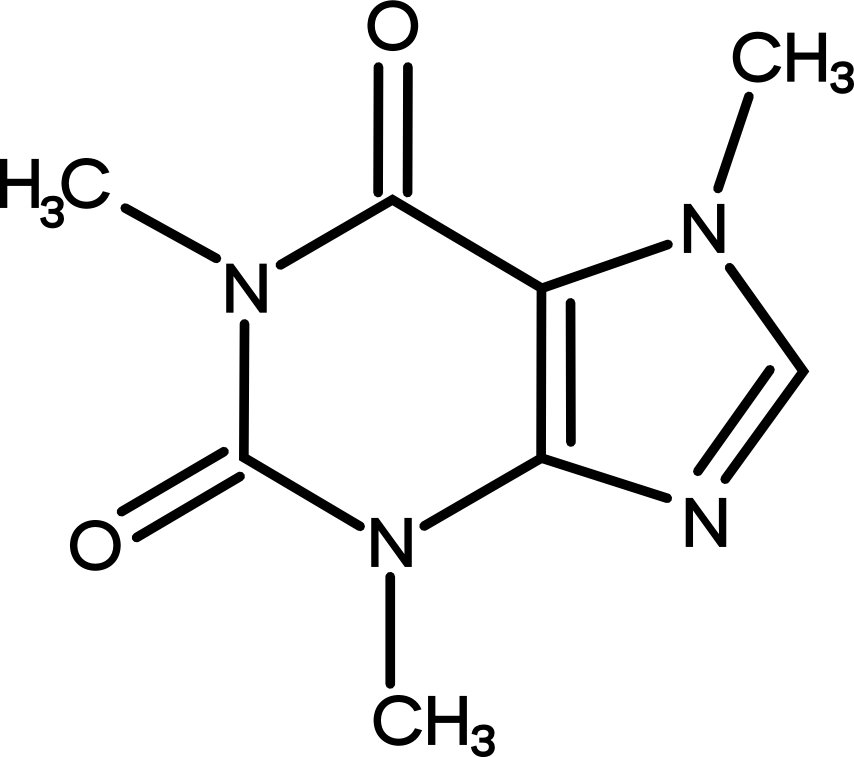Flower nectar, which is typically composed of sugars, is a plants way of attracting potential pollinators and ensuring the propagation of the plant species.
Although the concentrations of caffeine vary significantly, levels in tobacco plants range ~2.5 mg/L, while caffeine in citrus type plants can be 11-17.5 mg/L (4-7x greater), with grapefruits having the highest concentration of ~94.2 mg/L.
Who knew there was caffeine in grapefruit?!
In the study researchers presented bees with both normal and nectar traced with caffeine - the result: bees preferred nectar with caffeine!. Why would a bee prefer nectar traced with nicotine/caffeine? Well, the exact reason remains unknown, especially when you consider that the vast majority of these alkaloids (i.e. caffeine, nicotine) and numerous others tend to be quite toxic in nature.
One theory holds that these plants evolved over time to produce nectar traced with caffeine to somehow "hook" potential pollinators over those plants that don't - interesting idea.
So what does this have to do with coffee? Perhaps more than we think.

What is most interesting about this research is that if indeed bees do prefer nectar traced with nicotine/caffeine - it is contrary to what most of us have read, in terms of the role of caffeine in the coffee plant. It is widely accepted that the robusta species of coffee have a much higher aptitude for surviving in the warmer/more aggressive environments, which unlike it is arabica counterpart thrives only in the cooler/less harsh areas of the environment. Part of the reason why robusta is so much more "robust" is due to increased levels of caffeine (and chlorogenic acid), which effectively serve as a chemical deterrent from insects attacks.
The idea is that since caffeine is a bitter tasting compound, insects that ingest the fruit of these plants will be deterred and move on to other hosts nearby. For more information on the differences between arabica/robusta read here.
Now with this research presented, the idea that caffeine serves as a "defense mechanism" for the the coffee plant (and possibly others) is a little confusing. There may be other factors not included in the study that need to be considered before making a decisive conclusion.
For now we'll stick with the idea that caffeine serves as a chemical deterrent in coffee.
Perhaps in lower concentrations caffeine may serve to "hook" bees in preferring those plants to be pollinated, while at higher concentrations may serve as an effective deterrent. (The study did mention that bees preferred nectar containing about 1mg/L - a concentration that may be "ideal/correct" for insects).

Coffee Borer insect - responsible for the major quality damage in coffee
For now the question of whether these "buzzing bees" are indeed addicted to caffeine may be best answered by a botanist than a chemist. Coffee is a self pollinating species, so perhaps the need to attract bees is not as important. In either case, it does make for an interesting side note.
Please feel free to leave any feedback.

